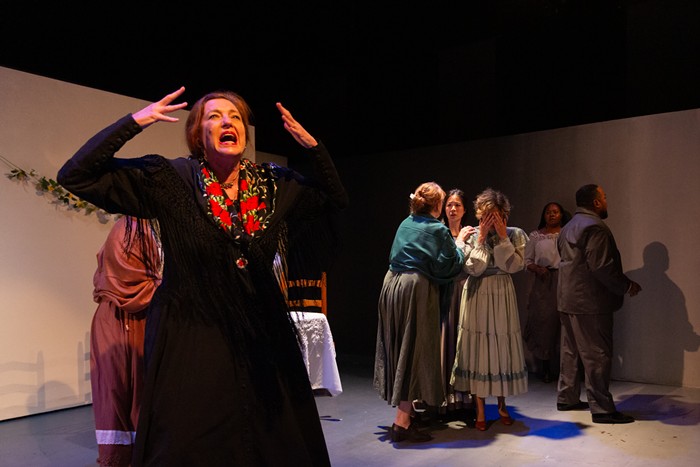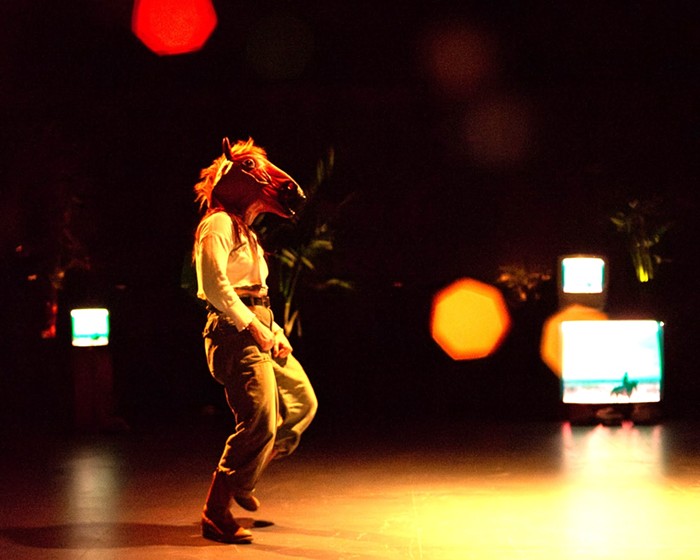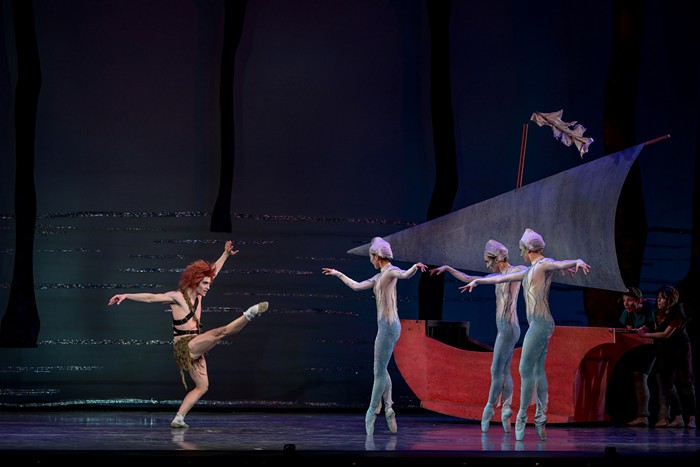In the words of Diana Ross, who performed Pippin's "Corner of the Sky," at a 1973 concert in Copenhagen (YouTube!): "Pippin is the story of Emperor Charlemagne's son, who could never find happiness. He tried everything. He tried war, he tried religion... he even tried a little sex. But it didn't work. Too bad for him."
Pippin is a wry, self-reflective show that effectively skewers the illusions of those who think they're destined to live life on center stage. It's produced here by Tin Pan Alley, a fledgling company dedicated to producing classic musicals during the summertime. The company is newly founded by Stevie Boothe and David Ruben, two twentysomethings who both spend most of the year at out-of-state colleges, and its very existence makes no sense on paper—but Tin Pan Alley's spirited production of Pippin is an effective rebuke to any who might question the wisdom of two college kids starting a theater company on their summer break.
Pippin (Connor Bond) is convinced he's meant for greatness. He's not sure how he's going to be great, exactly, but he knows that the world's a stage and other people are merely his supporting cast. He trips from one calling to the next, never quite finding fulfillment in anything, until ultimately finding a measure of contentment outside of the spotlight.
It's far easier to enumerate this production's weaknesses than its strengths: There's a lot wrong with it, from a spotlight that can't quite follow the action to musicians who need another week's practice with the score. But despite a laundry list of technical complaints, Pippin is a genuinely charming production, for reasons that have less to do with technical virtuosity than sheer enthusiasm and energy. The scrappy cast gives it their all, and it's surprisingly easy to forgive a wobbly spotlight when an ensemble is this invested and engaging.
While youthful exuberance lends Pippin its considerable charm, it's also paradoxically what holds the show back: One wishes this production was just a bit more mature, a little less "jazz hands," a little more comfortable with the script's darker moments. If Tin Pan Alley can grow up (technically and thematically) without sacrificing their enthusiasm and passion, expect them to make serious ripples in the local theater scene by the time summer break '09 rolls around.



















